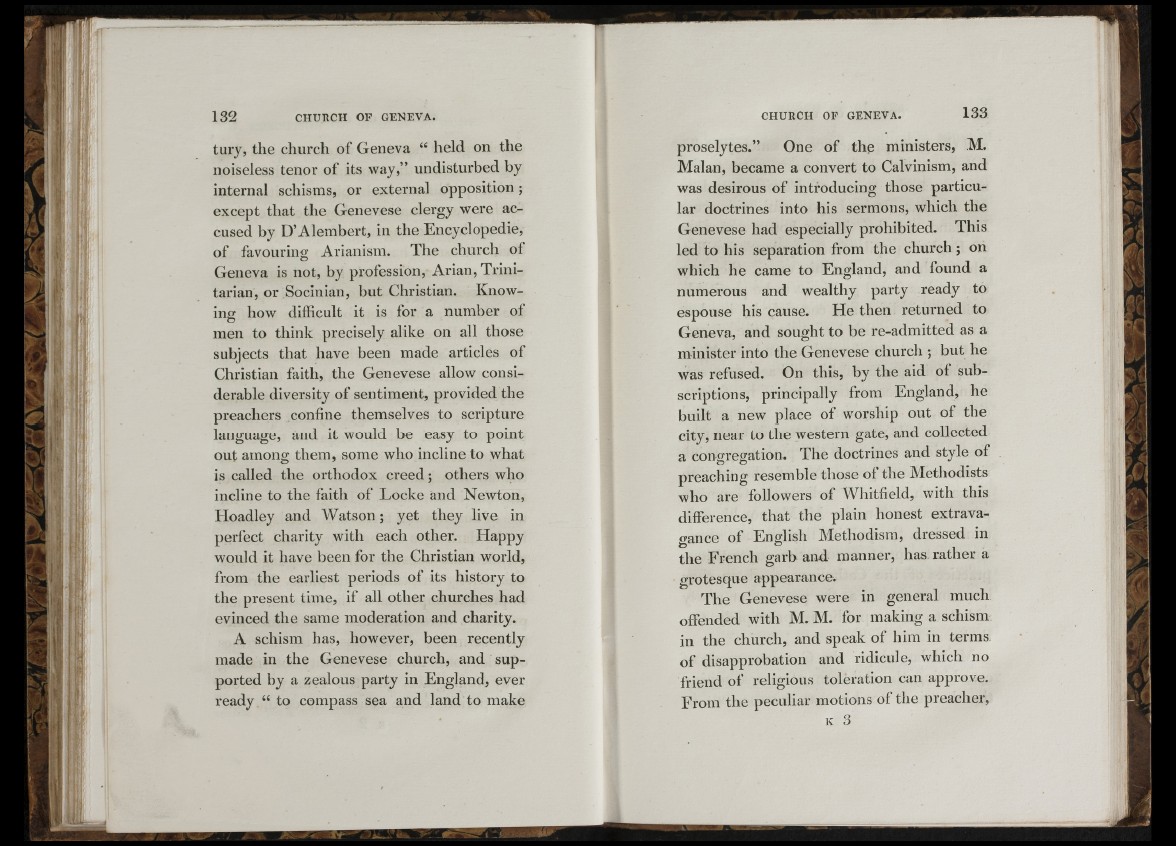
I ,, i
’ iî;!'
;:v riii
i- Wf
I \Ui
"i
tiny, the church of Geneva “ held on the
noiseless tenor of its way,” undisturbed by
internal schisms, or external opposition ;
except that the Genevese clergy were accused
by D’Alembert, in the Encyclopedic,
of favouring Arianism. The church of
Geneva is not, by profession, Arian, Trinitarian,
or Socinian, but Christian. Knowing
how difficult it is for a number of
men to think precisely alike on all those
subjects that have been made articles of
Christian faith, the Genevese allow considerable
diversity of sentiment, provided the
preachers confine themselves to scripture
language, and it would be easy to point
out among them, some who incline to what
is called the orthodox creed; others who
incline to the faith of Locke and Newton,
Hoadley and Watson ; yet they live in
perfect charity with each other. Happy
would it have been for the Christian world,
from the earliest periods of its history to
the present time, if all other churches had
evinced the same moderation and charity.
A schism has, however, been recently
made in the Genevese church, and supported
by a zealous party in England, ever
ready “ to compass sea and land to make
proselytes.” One of the ministers, M.
Malan, became a convert to Calvinism, and
was desirous of introducing those particular
doctrines into his sermons, which the
Genevese had especially prohibited. This
led to his separation from the church ; on
which he came to England, and found a
numerous and wealthy party ready to
espouse his cause. He then returned to
Geneva, and sought to be re-admitted as a
minister into the Genevese church ; but he
was refused. On this, by the aid of subscriptions,
principally from England, he
built a new place of worship out of the
city, near to the western gate, and collected
a congregation. The doctrines and style of
preaching resemble those of the Methodists
who are followers of Whitfield, with this
difference, that the plain honest extravagance
of English Methodism, dressed in
the French garb and manner, has rather a
grotesque appearance.
The Genevese were in general much
offended with M. M. for making a schism
in the church, and speak of him in terms
of disapprobation and ridicule, which no
friend of religious toleration can approve.
From the peculiar motions of the preacher,
K 3